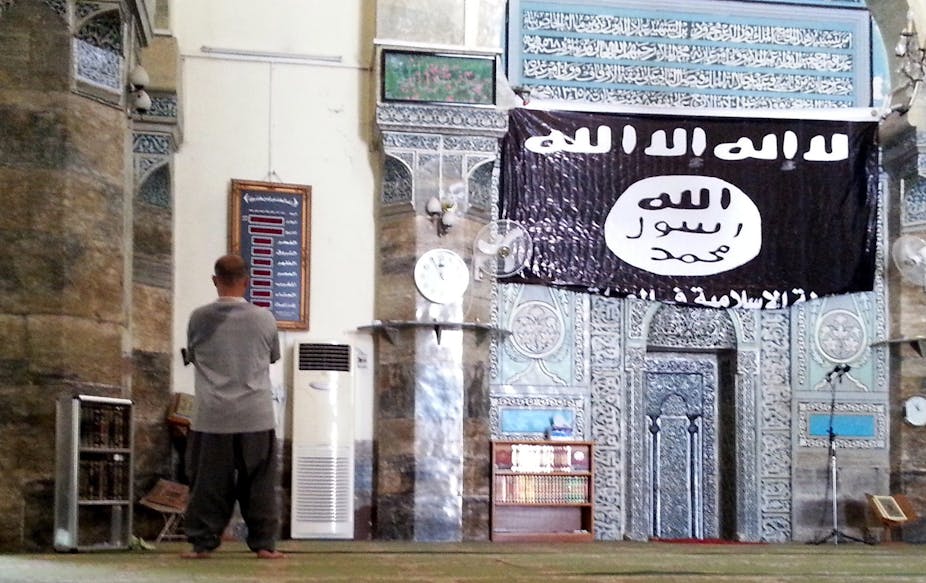The West has a tendency to play to its strengths and sometimes be blinded by them. This is no more true than in its current strategy against Islamic State (IS).
On Tuesday, Prime Minister Tony Abbott announced a further deployment of Australian troops to Iraq from May. Around 300 Australian and 100 New Zealand troops will join around 200 Australian special forces already training Iraqi government soldiers in their fight against IS.
However, 6000 bombs dropped from the sky from August 2014 until the end of last year, a renewed effort to train and equip the Iraqi army and a push to establish an acceptable Syrian opposition have led to a stalemate. Ten years on from the first free elections in Iraq, the overriding lesson the West should have learnt in the context of low-intensity foreign forays is that military power can win battles but it can’t secure peace.
This lesson is just as applicable today in the battle against IS. While the initial military intervention was critical in stopping IS’s expansion, the continued focus on aerial bombardment of military and economic assets is a distraction that stands to gain little. It also risks alienating the Sunni population.
Political solution must follow initial military response
Military tacticians such as retired Australian Major-General Jim Molan argue that:
The combination of air and ground forces effectively used … can achieve the aim.
The aim is to “return sovereignty of Iraq … and eject IS”. This view of IS being somehow extraneous to Iraq – that it can be expelled as if it were a foreign army – fundamentally misunderstands the dynamics at play.
The challenge in Iraq is not a lack of military might but of political will. Illustrations of the inherent political problems include: the taking of Mosul, which supposedly had a garrison of 20,000 Iraqi soldiers and police, by a reported 500-800 IS militants; the refusal of some tribes to support the Iraqi government despite having previously fought against al-Qaeda; and the inability of Western troops to develop an effective Iraqi army and police force despite ten years and US$26 billion of effort.
Dig a little deeper into this political morass and we find ethnic rivalries, religious differences and an intricate and entrenched web of cronyism. Together these elements have weakened not only the Iraqi state but more importantly Iraqi society. IS has succeeded in this environment because of its ability to unify various disenfranchised groups including secular Baathists, Iraqi nationalists, Sunni fundamentalists and a broad swathe of tribesmen under a single banner.
The plan of degrading IS through aerial bombardment is the first stage in a strategy that hopes to return Iraq to a reality that never existed. This is one in which the Kurds and Shia and Sunni Arabs share power equally and voters democratically elect politicians regardless of ethnicity or religion – solely on the policies of their party.
Winning over the politically disenfranchised Sunnis
The continued bombardment has only strengthened the hand of Islamists, whose strongest recruitment tools – their myths and lore – are built through confrontation with apostates and foreign enemies.
The common cause that brought the disparate Sunni groups together was freedom from what was perceived to be an oppressive regime – the Shia rule of former Iraqi prime minister Nouri al-Maliki. In such circumstances, eliminating one of the aggrieved parties (IS) in the process leads to creating an enemy of the other, the politically disenfranchised.
This coming together of disparate groups makes the troubles in Iraq unique. A different approach and some new thinking is required. A successful approach must work towards disentangling the politically beleaguered from the fundamentalists.
Disentangling the non-IS groups requires a bold political proposition that responds to the perception of persecution and political disenfranchisement. Any such offer must go above and beyond expectations. It must offer iron-clad guarantees against a return to the former status quo.
The only option that meets these criteria is for the international community to push for an autonomous Sunni region. The Iraqi constitution recognises the region of Kurdistan while allowing for new regions to be created. Importantly, Article 121 allows for regions to take responsibility for:
… the establishment and organisation of the internal security forces for the region such as police, security forces and guards of the region.
The same article recognises a region’s:
… right to exercise executive, legislative and judicial powers … except for those authorities stipulated in the exclusive authorities of the federal government.
The opposition to expanded federalism in Iraq has historically been based upon a fear that it would lead to conflict. The hope was for a strong, central government comprised of representatives from each of the groups working collaboratively, diminishing any ethnic or secular differences. This hope should now be relegated to history; too much blood has been spilled.
Shifting the West’s focus away from a military response and instead to a political one – by encouraging Iraqi leaders to support expanded federalism and mobilising the international community in this cause – is a potential circuit-breaker. It could end the stalemate. It offers hope for re-integrating Sunni Arabs into the Iraqi government and, importantly, would dramatically weaken IS in Iraq and potentially Syria.

